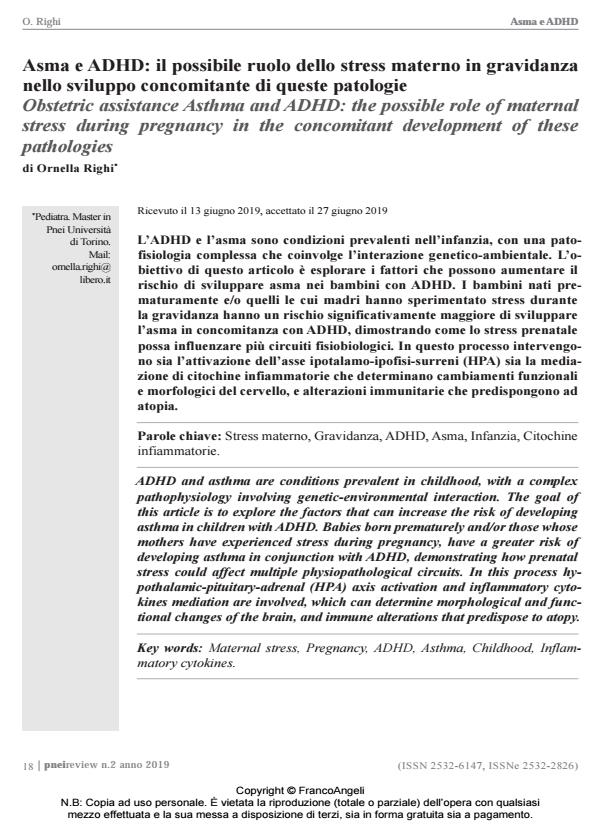Obstetric assistance Asthma and ADHD: the possible role of maternal stress during pregnancy in the concomitant development of these pathologies
Journal title PNEI REVIEW
Author/s Ornella Righi
Publishing Year 2019 Issue 2019/2
Language Italian Pages 14 P. 18-31 File size 139 KB
DOI 10.3280/PNEI2019-002003
DOI is like a bar code for intellectual property: to have more infomation
click here
Below, you can see the article first page
If you want to buy this article in PDF format, you can do it, following the instructions to buy download credits

FrancoAngeli is member of Publishers International Linking Association, Inc (PILA), a not-for-profit association which run the CrossRef service enabling links to and from online scholarly content.
ADHD and asthma are conditions prevalent in childhood, with a complex pathophysiology involving genetic-environmental interaction. The goal of this article is to explore the factors that can increase the risk of developing asthma in children with ADHD. Babies born prematurely and/or those whose mothers have experienced stress during pregnancy, have a greater risk of developing asthma in conjunction with ADHD, demonstrating how prenatal stress could affect multiple physiopathological circuits. In this process hypothalamic- pituitary-adrenal (HPA) axis activation and inflammatory cytokines mediation are involved, which can determine morphological and functional changes of the brain, and immune alterations that predispose to atopy.
Keywords: Maternal stress, Pregnancy, ADHD, Asthma, Childhood, Inflammatory cytokines.
Ornella Righi, Asma e ADHD: il possibile ruolo dello stress materno in gravidanza nello sviluppo concomitante di queste patologie in "PNEI REVIEW" 2/2019, pp 18-31, DOI: 10.3280/PNEI2019-002003